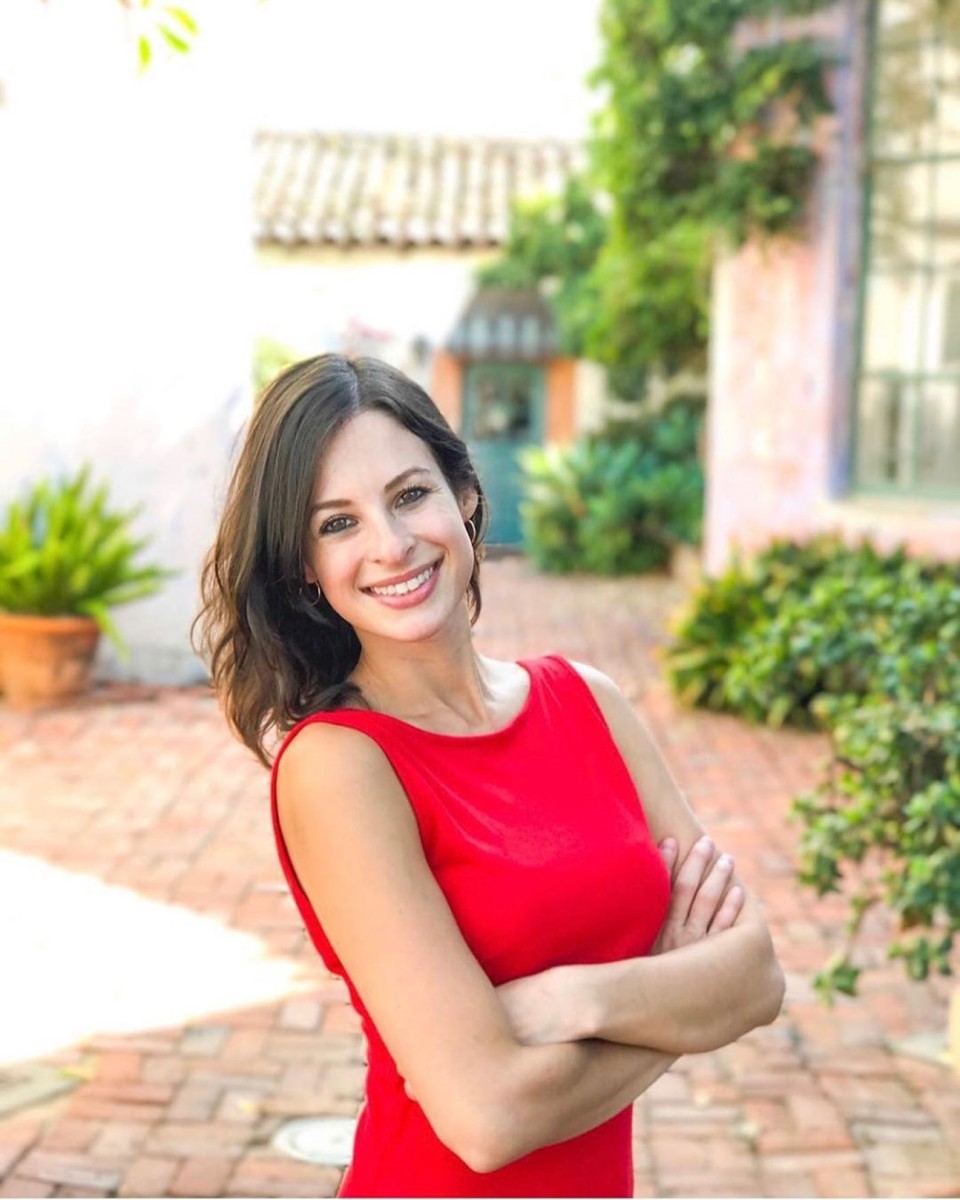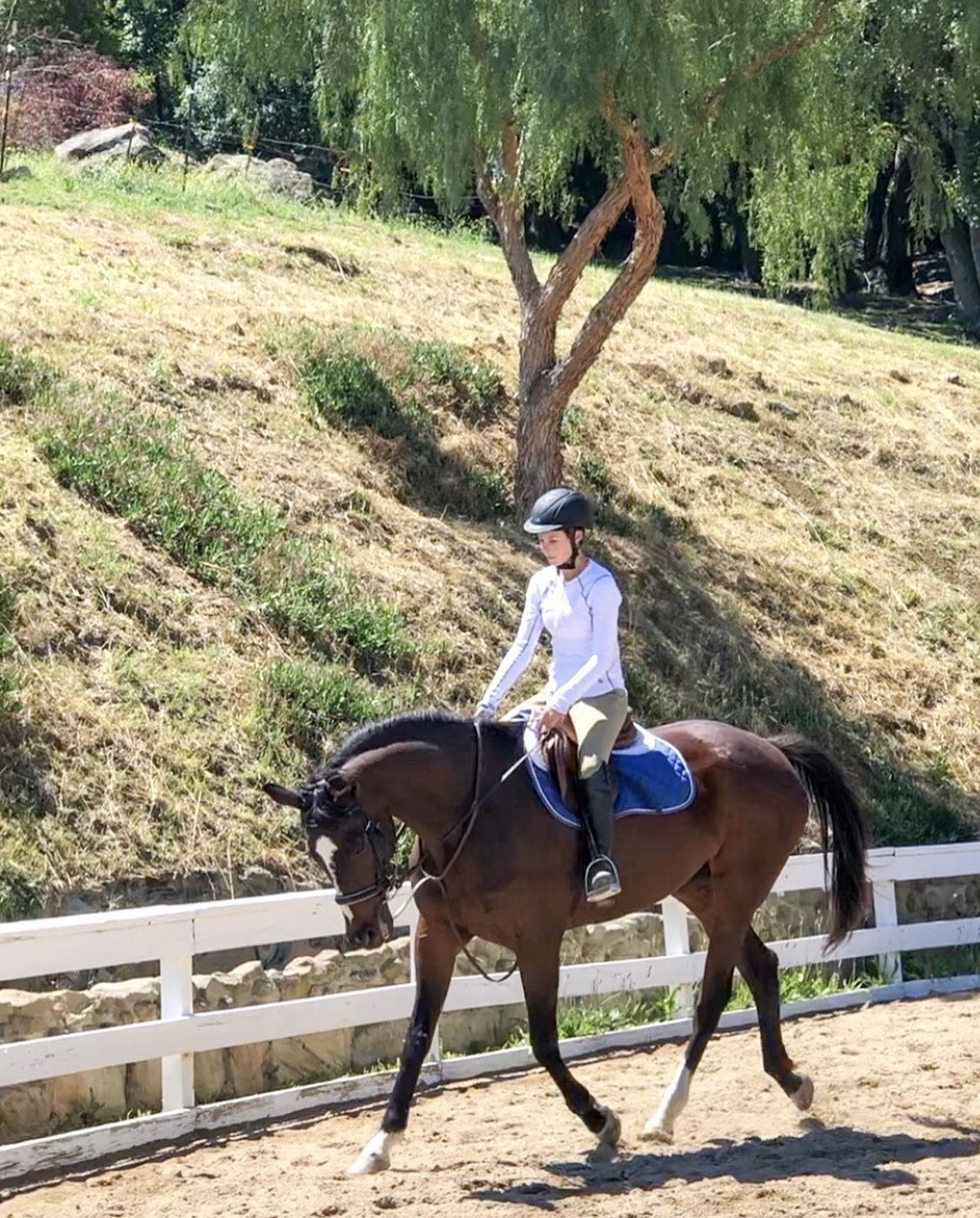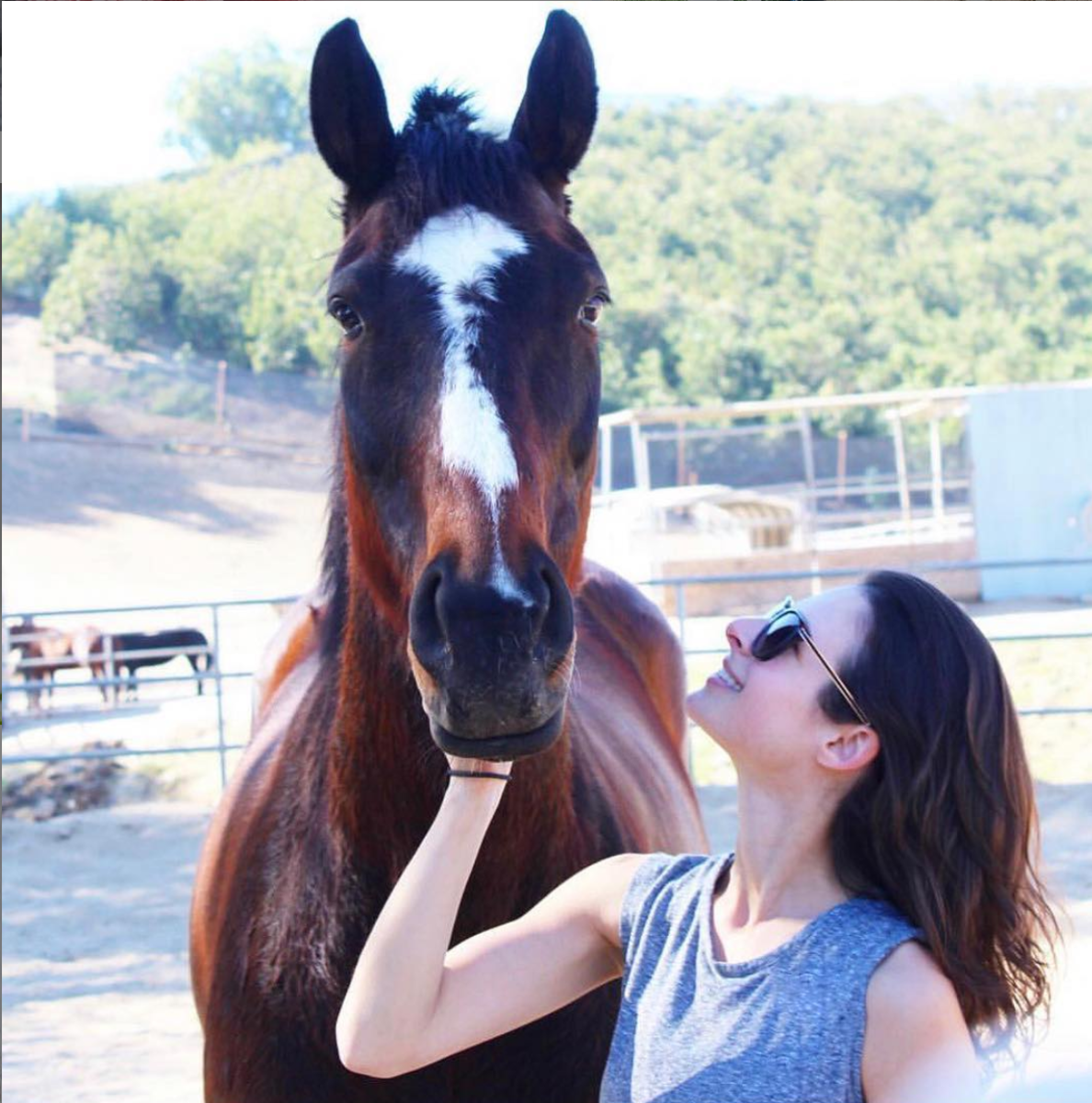I first spoke to Natalie Gavi, a registered dietitian nutritionist who specializes in sports nutrition for the equestrian athlete, when I was preparing to compete in the 2018 Mongol Derby—a 600-mile horse race where riders can bring only 11-lbs of gear, and therefore must rely on local herders to provide meals.

I contacted Natalie for advice on how a mostly vegetarian should prepare to eat nothing but mutton and goat fat for the duration of the multiday race, but also wanted some tips on how to use nutrition to optimize my performance in my training workouts. Natalie ended up creating an individualized nutrition plan, based on my medical history and calorie and protein needs to help me reach peak athletic performance during training. She also gave me advice on how to approach eating and hydrating during the race.
Natalie, who is based in Los Angeles, has her own practice, Gavi Nutrition. A lifelong rider, Natalie sees a need for a greater understanding of proper nutrition among equestrians.
I learned so much from Natalie working with her and thought our Practical Horseman listeners would too, so when I was in L.A. in January, I knew I had to catch up with her.
In this episode, Natalie explains how nutrition plays a role in a rider’s performance, the importance of timing your meals with your rides, how riders can find the right nutrition plan for them and more.
You can listen to the full interview wherever you listen to podcasts, but in the meantime, here is a snippet of our conversation.
Can you talk about how nutrition plays a role in a rider’s performance and why it’s important?
Riders are all athletes, whether you are an amateur rider or a professional. We’re all using our bodies, we’re handling giant animals both on and off the ground and properly fueling yourself is super important to making sure you have enough energy to do all the ground work that you need to do, to make sure that you have the energy to ride effectively in the saddle and also to use that as a form of preventing injuries just to make sure you’re meeting all your macro and micronutrient needs.
It seems like in other sports, athlete nutrition is at the forefront of performance and not so much in the equestrian world. Do you have any thoughts on why that is?
I’ve noticed that quite a bit. I think nutrition has taken awhile to catch up just in general in the sports world. It was only pretty recently that dieticians began being involved in sports teams even in the NFL and the NBA.
I think in our sport, we really prioritize our teammates—our equine partners. We have a tendency to put our personal and our health, fitness, etc. related needs on the backburner and I think nutrition is part of that. I have seen fortunately a forward movement of including the rider in prioritizing themselves in addition to prioritizing the horse’s needs, so I think we’re just playing a little bit of catch-up.
Can you talk about the importance of timing of meals and things to eat before and after you ride?
That’s definitely very individualized. It’s going to depend person to person. The rule of thumb that I like to recommend is eating a full meal, a balanced meal—so that’s going to include carbohydrates, fruits and/or vegetables and a protein about 3 to 4 hours before a ride. That gives your body enough time to really break the food down, digest it and use that food for energy. If you’re planning on being in the saddle anywhere 30 to 60 minutes before a ride or before working out, a good rule of thumb is focusing more on an easily digested carbohydrate or fruit such as a banana. This is the time and place for white bread versus wheat bread—it just takes less time to break down—and pairing that with a protein, something like a hard-boiled egg or maybe a handful of nuts for some sustained energy. All riders are different, so I take into account any medical conditions going on, any digestive issues that might be either prolonging the period of time in which they need to eat a certain meal or eat it closer to the ride.

Could you share some nutrition basics and tips as an introduction for someone who wants to start eating healthier?
I think the biggest thing you can do is realize that making a huge change that results in either overly restricting yourself of taking out your favorite foods isn’t something that is going to be sustainable and ultimately we’re looking at sustainable changes in the long run and that’s what will really impact health and impact athletic performance. One of the biggest things you can do is find places to add things. So, where can you add foods that are full of nutrients such fruits and vegetables, whole grains, heart healthy-fats, things like that. Start by adding a vegetable a day to a meal that normally doesn’t have a vegetable or adding a vegetable to a snack that normally wouldn’t have a vegetable. Even taking a step back from that, if somebody isn’t eating regular meals, just starting by making sure people aren’t skipping meals is a really good starting point.
Can you share general tips on how riders can find the right nutrition plan for them?
I think there’s a lot of things that need to be taken into consideration. As a dietician who helps riders create individualized nutrition plans, one of the biggest things that I find is finding a happy balance of what changes can you make that you think you’ll be able to stick with. Do you see yourself sticking with those changes a year from now, five years from now? Is being as restrictive as you might want to be upfront something that can ultimately result in overeating those foods, leading into the cycle of restriction overeating guilt and back to restriction and winding you back to square one? I think the biggest thing to think about is what changes can I make that I can make long term. So instead of what foods can I take out, what foods can I add to my diet is a better mindset to have. Also, thinking about the timing of your meals, especially with your rides. And of course that’s going to look very different for an amateur who may just be going to the barn in the evening versus a professional rider who is riding up to 10 or 15 horses a day in back-to-back to rides. So it’s definitely very individualized and changes from person to person.

Do you have any tips on how to healthy at a horse show or tips on things to bring yourself that would be good?
Horse shows are a great place to think of foods that are easily digested, especially if you deal with show nerves you want to really reduce the impact that foods that are harder to digest. So, some good ideas would be a banana and nut butter, or packing a peanut butter and jelly sandwich and eating half of it 30 to 60 minutes before a ride and eating the other half later. It’s also not the time to experiment with foods. Do that when you’re schooling and see what foods really work with you before you ride. What are the foods that cause GI upset? Or what are the foods that give you energy, and figuring those foods and sticking with them while you’re showing.
Listen to the full podcast here and for more on Natalie, visit her website.
About the Practical Horseman Podcast
The Practical Horseman podcast, which runs every other Friday, features conversations with respected riders, industry leaders and horse-care experts to inform, educate and inspire. It is co-hosted by Practical Horseman editors Sandy Oliynyk and Jocelyn Pierce. Upcoming episodes are with the legendary show jumper, Eric Navet, top hunter/jumper trainer Don Stewart and hunter/jumper rider Hannah Isop. Find the podcast at iTunes, Stitcher and Soundcloud or wherever you get your podcasts.
This podcast episode is brought to you by Straight Arrow.






